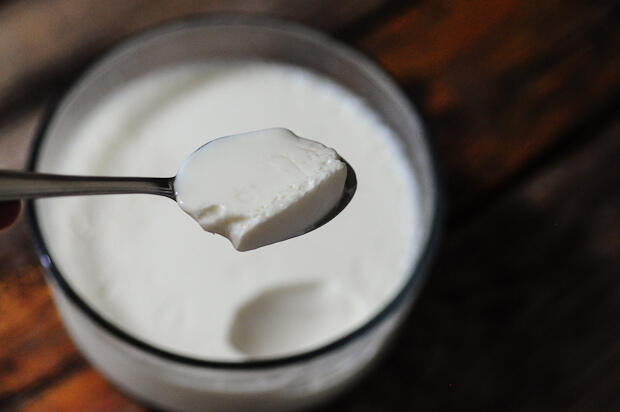Too Sour? Easy Tricks to Fix Homemade Curd and Make It Thick and Creamy

Too Sour? Easy Tricks to Fix Homemade Curd and Make It Thick and Creamy
There’s a special joy in setting curd at home. Fresh, preservative-free, and full of flavor, it often tastes better than store-bought tubs. But as anyone who makes it regularly knows, homemade curd doesn’t always turn out perfect. Sometimes it becomes too sour, and other times it sets runny instead of creamy.
This happens because curd is made through fermentation, where lactic acid bacteria turn milk into curd. In warmer weather or when left out for too long, the bacteria work faster, leading to excess sourness. Luckily, you don’t need to throw away that batch. A couple of simple tricks can help bring back the taste and texture you want.
The 2-Step Fix
- Strain the Curd: Place the sour curd in a fine strainer and let the water (whey) drain out. This alone reduces tanginess and makes the curd thicker.
- Add Fresh Milk: Take the thick curd that remains and mix in 2–3 tablespoons of fresh milk. Stir until smooth. The milk cuts the sourness and gives a creamy, rich consistency.
Alternative Method
If you don’t want to add milk, mix equal parts of fresh curd and sour curd. Whisk well. The fresher curd balances out the sourness, and the blend tastes close to freshly set curd.
Don’t Waste Sour Curd
Even slightly sour curd can be put to good use in cooking. It makes an excellent marinade for paneer, vegetables, or meat, especially in dishes like paneer tikka or grilled kebabs. The natural tang helps spices soak in better, giving your food a flavorful, restaurant-style taste.
How to Store Curd Right
To prevent curd from turning sour too quickly, refrigerate it as soon as it sets. Cold storage slows down fermentation and keeps the flavor mild.
Curd is not only versatile in the kitchen but also packed with calcium and protein, making it a healthy addition to daily meals. With these small tricks, you can enjoy creamy, delicious curd every time.
Disclaimer: The results may vary depending on milk quality, temperature, and storage conditions. This information is for general guidance.












